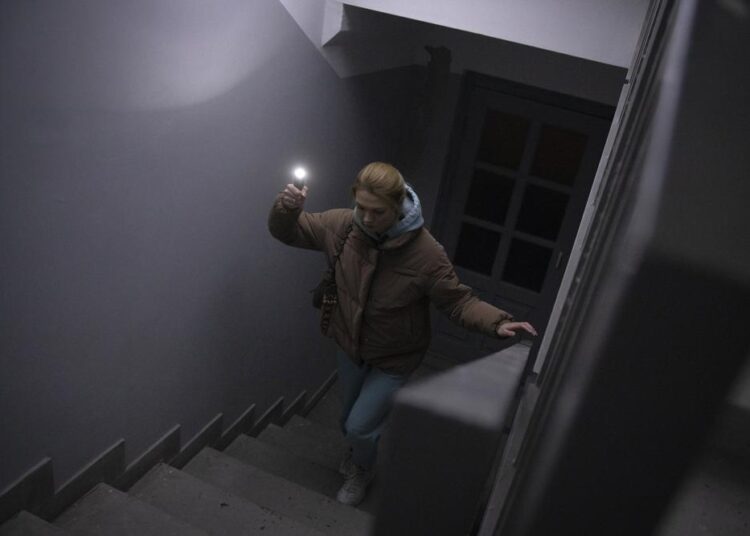KYIV, Ukraine — When the power is out, as it so often is, the high-rise apartment overlooking Ukraine’s war-torn capital feels like a deathtrap. No lights, no water, no way to cook food. And the risk of not being able to escape from the 21st floor in time should a Russian missile strike. Even when electricity comes back, it’s never on for long.
“Russian strikes are plunging Ukraine into the Stone Age,” says Anastasia Pyrozhenko. In a recent 24-hour spell, her 26-story high-rise only had power for half an hour. She says the “military living conditions” have driven her and husband from their apartment.
“Our building is the highest in the area and is a great target for Russian missiles, so we left our apartment for our parents’ place and are preparing for the worst winter of our lives,” said the 25-year-old.
The situation in Ukraine’s capital, Kyiv, and other major cities has deteriorated drastically following the largest missile attack on the country’s power grid on Tuesday. Ukrainian state-owned grid operator Ukrenergo reported that 40% of Ukrainians were experiencing difficulties, due to damage to at least 15 major energy hubs across the country.
Warning that electricity outages could last anywhere from several hours to several days, the network said that “resilience and courage are what we need this winter.”
Kyiv Mayor Vitali Klitschko, too, stressed the need to be ready and resilient in the face of a potential blackout: “Worst case scenario. Actually, I don’t like to talk about that, but I have to be prepared if we (do not) have electricity, blackout, no water, no heating, no services and no communication,” Klitschko told the AP on Friday.
Ukrenergo said in a statement that “thousands of kilometers of key high-voltage lines are not working,” affecting the entire country.
It published a picture of a transformer station that was destroyed by a Russian missile, leaving around 400,000 people without power. According to the report, “there are dozens of such transformers in the power system now. This equipment cannot be replaced quickly.”
President Volodymyr Zelenskyy said after last week’s strikes that more than 10 million Ukrainians were left without electricity; by Sunday, he said some areas had seen improvements.
“The restoration of networks and technical supply capabilities, the de-mining of power transmission lines, repairs — everything goes on round the clock,” Zelenskyy said in his nightly address.
Blackouts were scheduled Sunday night in 15 regions and the city of Kyiv, he said. Ukrenergo said there would be scheduled outages in every region on Monday.
A sharp cold snap and the first snow have significantly complicated the situation in Kyiv, where temperatures are often below freezing in winter months. The cold forces people to turn on their heaters, which drastically increases the load on the grid and makes power outages longer. In light of the dropping temperatures, the Kyiv authorities announced they were setting up communal heating points.
In the city of 3 million people, 528 emergency points have been identified. Here, residents will be able to keep warm, drink tea, recharge their phones and get any necessary help. The heating points will be equipped with autonomous power sources, as well as special boiler rooms.
Mayor Klitschko, too, spoke of measures taken to prepare for energy outages with the onset of colder temperatures: “We prepared and we (asked for) electric generators (from) our partners, which they send to us. For this case, we have a reserve of diesel, (of) oil. We have a lot of warm stuff. We have medication.”
Many residents in Kyiv have begun to leave boxes of food, flashlights and power banks in elevators, in case anyone gets stuck in one for a long time. Due to the lack of electricity, public transport is disrupted, many small shops cannot operate, and some medical institutions can only work to a limited capacity.
Dentist Viktor Turakevich said that he was forced to postpone his patients’ appointments “for an indefinite time” because without electricity his central Kyiv clinic cannot function even during the day, and the generator will only arrive in a few weeks.






Discussion about this post